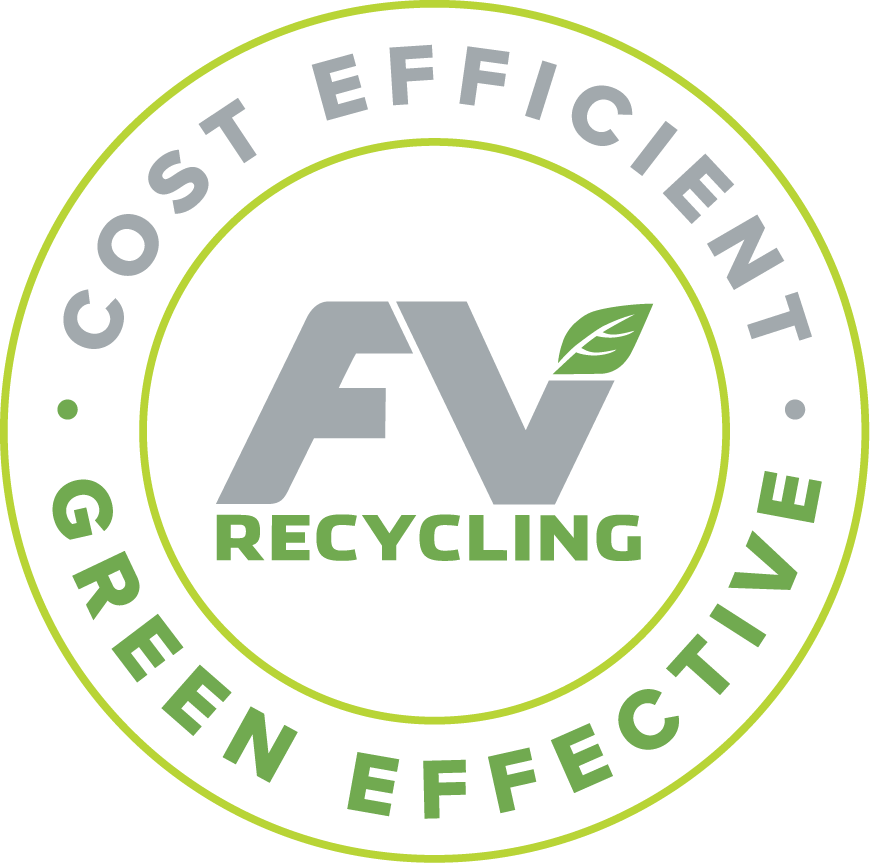FV Recycling: Your Go-To for Industrial Cardboard Recycling
For industrial businesses, efficient cardboard recycling is not just an environmental initiative, it’s an operational necessity. Managing bulk...
![]()
Sign up for monthly notifications from FV Recycling to stay up-to-date on news, events, education and more.
![]()
3 min read
 FV Recycling
:
Jun 23, 2025 4:19:02 PM
FV Recycling
:
Jun 23, 2025 4:19:02 PM
Table of Contents
If you’re not treating commercial waste management as a strategic channel, you’re leaving money on the table. What used to be a back-of-house task is now a measurable driver of cost reduction, regulatory compliance, and ESG performance. The reality is simple: a smart waste management program doesn’t just clean up - it cuts costs, creates revenue from recyclables, and protects your brand.
At its core, commercial waste management refers to the systematic handling of waste produced by businesses, institutions, and industrial operations. This includes the structured collection, sorting, recycling, and proper disposal of materials such as cardboard, plastic, metals, organics, and more.
But the value goes far beyond clean facilities.
Done right, commercial waste management reduces landfill dependency (see landfill diversion), cuts hauling costs, and creates new revenue streams from recyclables like cardboard, plastic, and metals. When paired with the right recycling equipment, it transforms waste from a sunk cost into a controlled, profitable system that supports both compliance and the bottom line.
Unlike residential waste, which is predictable and easily handled through municipal pickup and standardized curbside services, commercial waste is complex and constantly shifting. Manufacturing automation, industrial engineering facilities, distributors, aviation FBO's, logistics hubs, and retail operations generate high volumes of diverse materials, all of which demand custom hauling schedules, larger storage solutions, and specialized equipment like cardboard balers and compactors.
Beyond volume, commercial facilities face tougher compliance standards. That’s why tailored programs often include on-site equipment, recycling audits, and transparent reporting; tools that not only keep your business compliant but also drive efficiency across the board.
Customized schedules and scalable service for high waste volumes
Handles complex waste streams like cardboard, plastic, metal, and organics
Requires specialized equipment (e.g., cardboard balers, compactors)
Includes audits, compliance support, and equipment installation
Designed for businesses, industrial facilities, and large institutions
Add your content here.
Standard curbside pickup on fixed local schedules
Limited to basic household waste and recyclables
Uses small bins with no need for industrial equipment
Managed by municipalities with little customization
Serves individual homes and small residential buildings
Add your content here.
The same complexity that separates commercial waste from residential waste is why many industrial organizations rely on specialized partners—and why digital visibility, compliance reporting, and inbound systems must be built with industry-specific precision.
The first step to building a smart waste strategy is understanding what you’re actually throwing away. Identifying your primary waste types allows you to align the right equipment and services ultimately cutting costs, reducing landfill impact, and capturing more value from recyclables.
Here’s a breakdown of the most common waste categories in commercial and industrial environments (and what to do with them):
No two industries generate waste the same way. Whether it’s excess packaging, scrap material, or food waste, every business has untapped value sitting in its dumpsters. A tailored waste strategy turns that material into measurable results.
Cardboard boxes, stretch wrap, and broken pallets pile up fast. With cardboard balers, pallet reuse programs, and OCC recycling, retail operations can clean up their docks and sell what they used to throw away.
Often in high volumes, production floors generate a mix of scrap metal, plastic, and cardboard. Commercial recycling equipment paired with scheduled hauling turns these materials into profit centers. For high-output plants, automation + baler repair services = uptime and ROI.
Restaurants, grocers, and processors face two major pain points: organic waste and packaging waste. With green waste recycling and cardboard compactors, they reduce contamination risks, stay in compliance, and save on overage fees without disrupting operations.
From paper files and cardboard packaging to cafeteria waste, these institutions generate a surprising volume of recyclable material. Recycling bins for schools and segregated pickup programs support compliance and foster a culture of sustainability for staff and students.
Hotels, apartments, and multi-tenant buildings benefit from shared compactors and coordinated pickup schedules. The result? Lower hauling costs, cleaner premises, and happier tenants without overcomplicating back-of-house operations.
Business parks and city facilities often lack unified waste solutions. With centralized commercial waste management or custom curbside recycling programs, you keep operations consistent, avoid compliance issues, and create long-term cost control.
Whether you need leased equipment (see baler rental), recycling equipment for sale, custom recycling programs, or support with regulatory compliance, FV Recycling delivers scalable (and custom) solutions built for impact.
If your current waste plan isn’t saving you money or helping you meet sustainability goals, it’s time to rethink the system. Let’s build a smarter approach together.
.png)
For industrial businesses, efficient cardboard recycling is not just an environmental initiative, it’s an operational necessity. Managing bulk...
.png)
Now more than ever, managing waste efficiently and recycling properly are essential for businesses and the environment. Businesses looking to...
.png)
In recent years, there has been an increased focus on sustainability and environmental protection, and more businesses are adopting practices to...